Peugeot e-208 Review: Making The Honda E Look Overpriced?
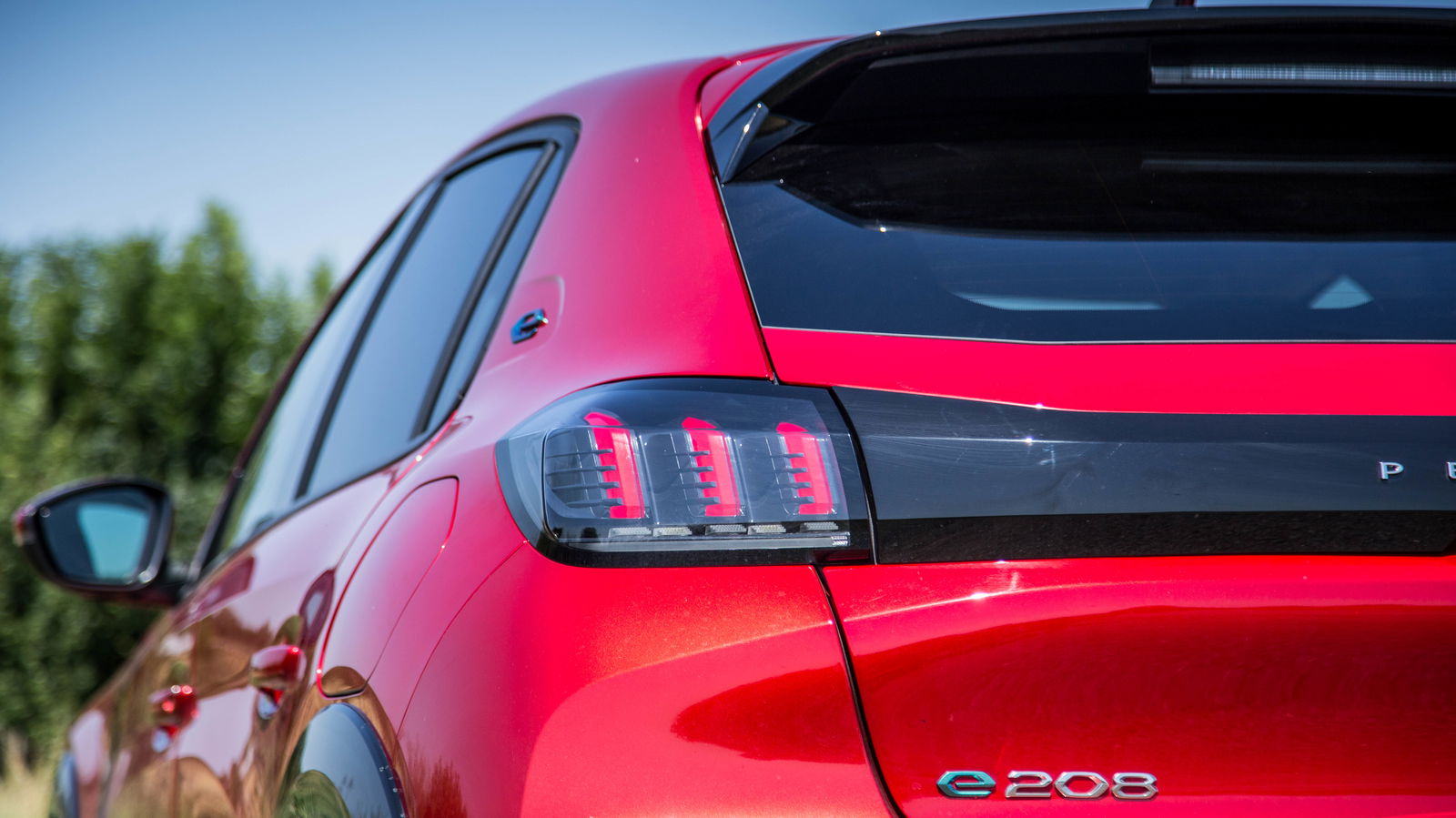
Pros
Cons
From the outside, it looks just like any other Peugeot 208. And it’s the same deal from the inside - the very stylish dash and that odd tiny steering wheel/lofty instrument binnacle layout is no different to the ICE 208 we had a few weeks ago.
Try and corner like you’re in a more conventionally-powered version of Peugeot’s supermini though, and yeah, you’ll notice. It may be a small car, but in that small frame, just under the floor, there’s a 50kWh battery pack. These are heavy things, meaning this 208 - compared to its lightest siblings which weigh just over a tonne - tips the scales at more like 1500kg.
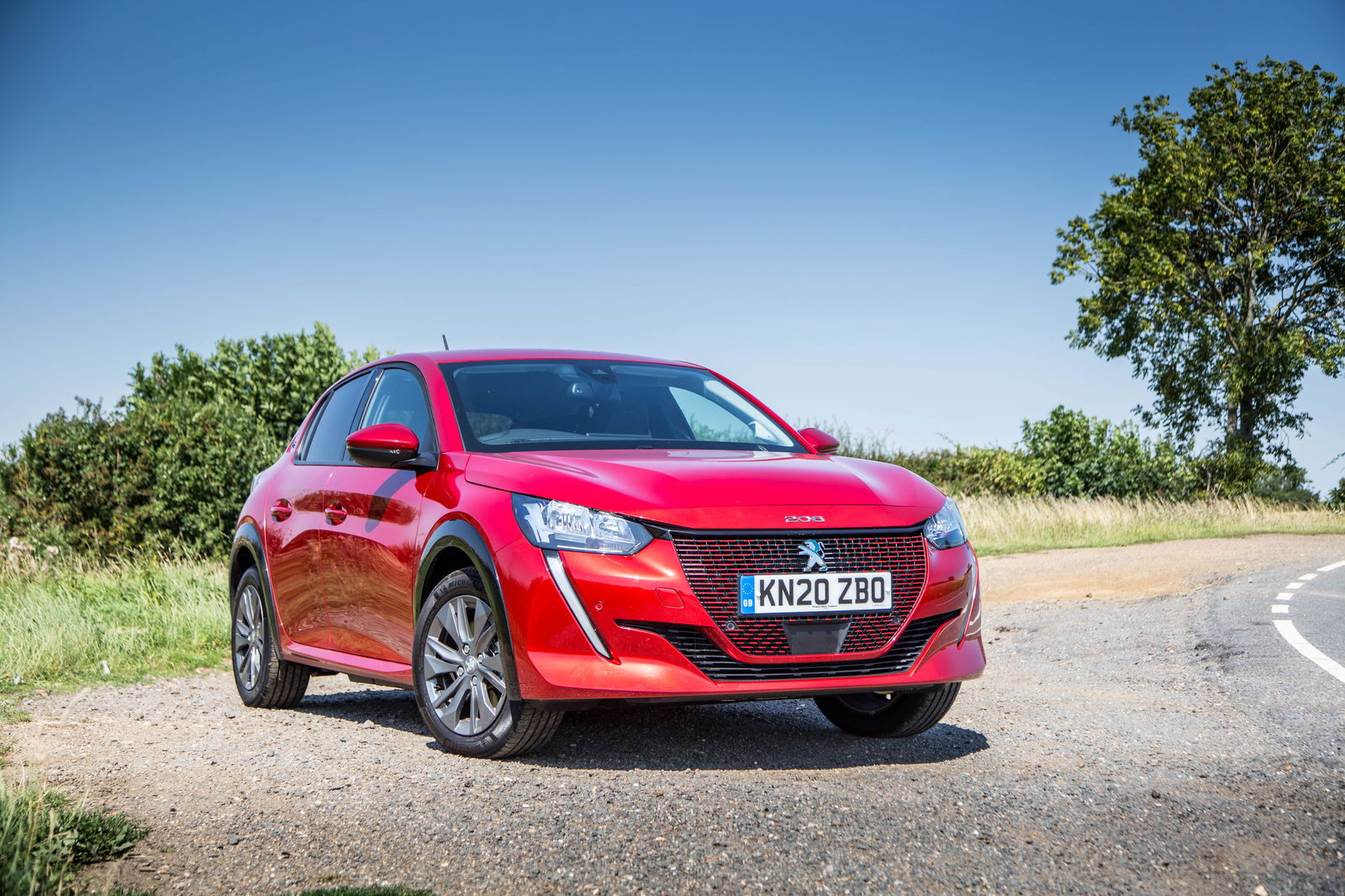
And so, it’s noticeably more unwieldy when driven quickly, which is at odds with the small size and the fast and light steering. Dial back your expectations, though, and it’s tidy enough, not that this is particularly relevant to the vast majority of people thinking about buying one of these.
They’ll be more interested in the range, and there’s good news on that front. According to the WLTP cycle, it’s good for 211 miles, giving a real-world figure with mixed driving of around 170 - 180. For comparison, the similarly-priced Honda E’s real-world mileage isn’t much over 100, and when it comes to charging it, the Peugeot is potentially a lot quicker.
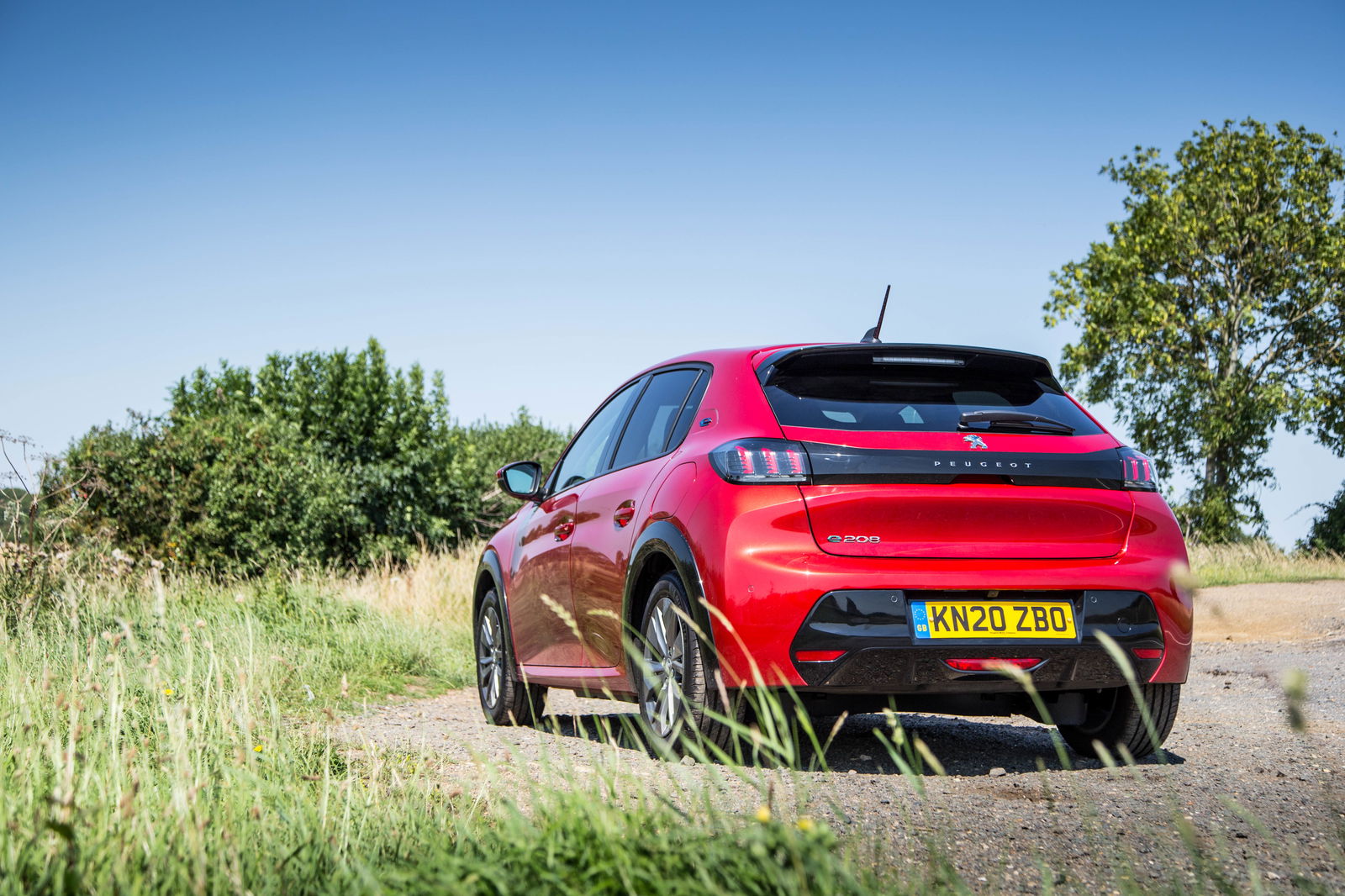
While the Honda’s onboard charger can only manage up to 50kW, the 208 has a 100kW-capable unit. So, find a charger powerful enough, and you’re looking at an 80 per cent/~140-mile charge in about half an hour. You could, then, leave the house having fully juiced the battery overnight and drive around 300 miles - a little more than the distance from Westminster to Durham - having only had to stop for half an hour for a charge and an extortionate motorway Burger King. A nice little retort for those whose entire argument against EVs seems to revolve around that trip they take to Devon once a year.
The complete silence when the e-208’s powertrain is awoken is a welcome one, when normally in a 208 you’d feel the harsh vibrations of a little inline-three idling away. Setting off, there’s a gentle whir from the front axle-driving motor, which gives only gentle regenerative braking effects in either of the two available settings.
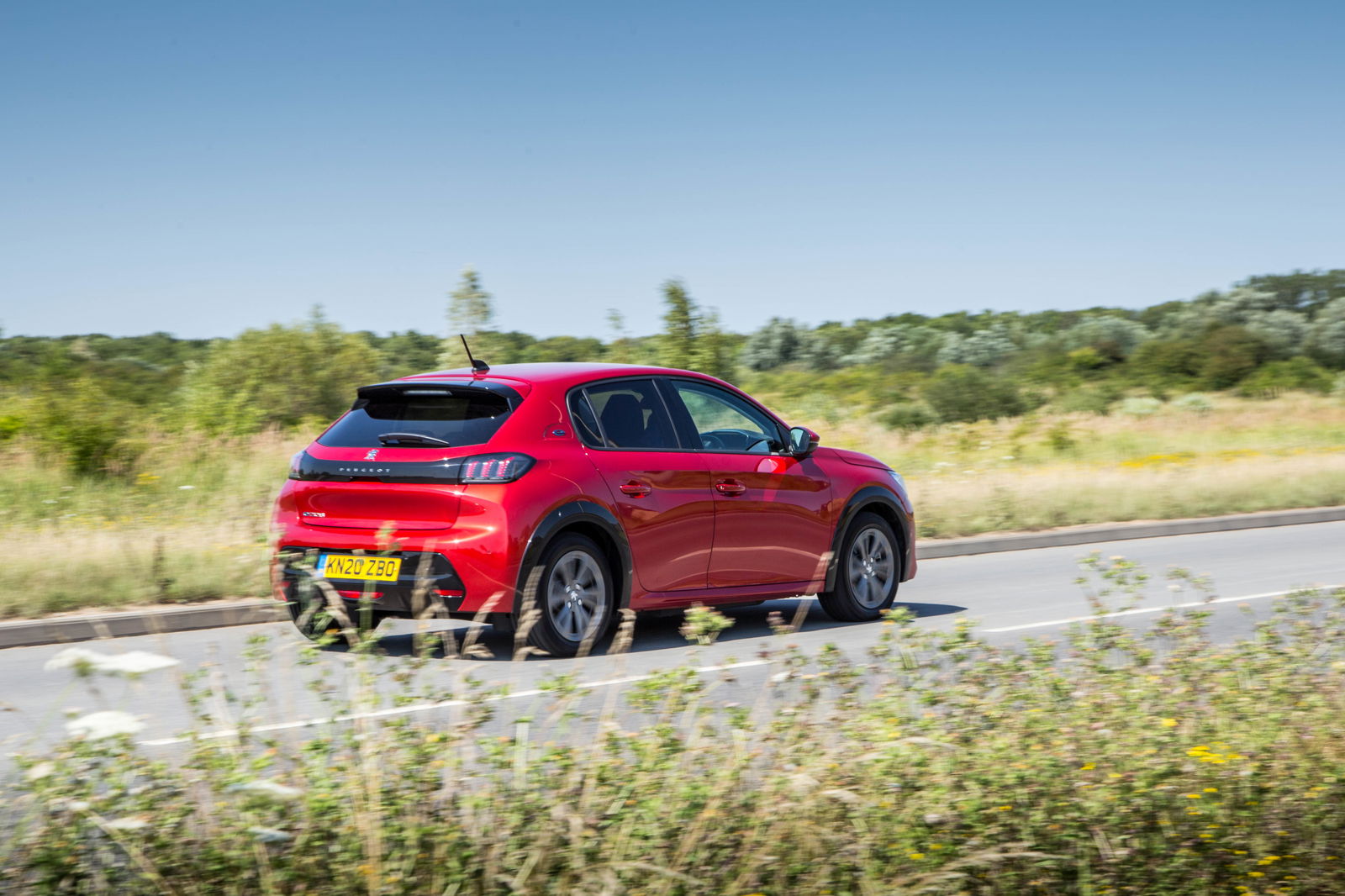
Although electric cars are - as you’re no doubt bored of hearing by now - capable of delivering instant torque, there’s a more gentle roll-in when you put your foot down here. The sprint to 30mph feels like it’s over very quickly, but after that, it’s as though the e-208 starts to run out of steam, even though the 0-62mph time is respectable at 8.1 seconds. It’ll feel like a near-silent rocketship to the average 208 buyer, though.
Once you’re up to speed, it rides smoothly, and the lack of engine note fails to expose any NVH issues. The e-208 is brilliantly refined for a smaller car, but it’s not all good news behind the wheel. The driving position won’t be for everyone; if you’re over a certain height, you’ll need to have the wheel lower than you’re used to, or it’ll block the cluster. The infotainment screen isn’t the best either, which is a shame since you need to use it for climate functions.
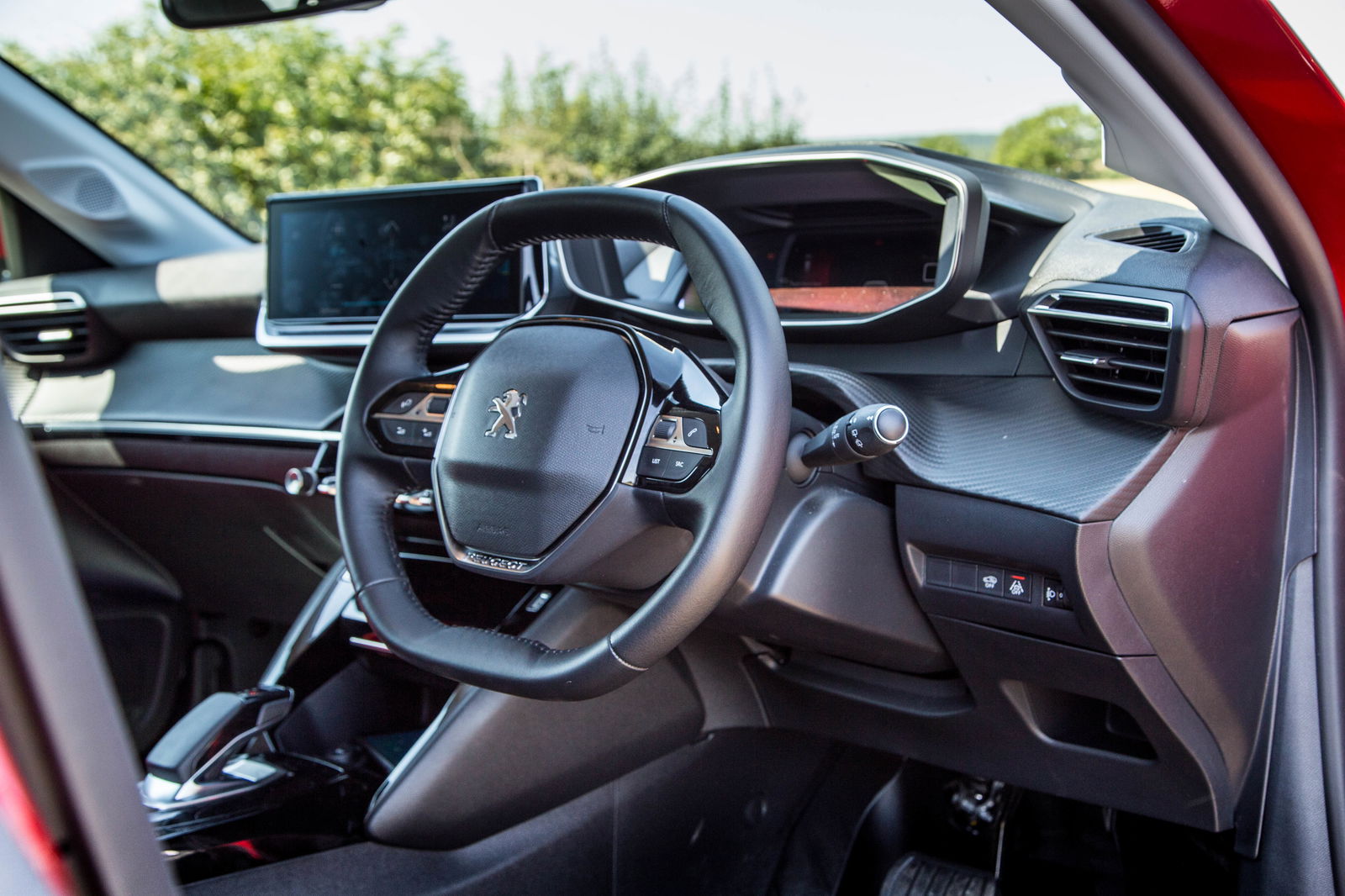
It’s also worth pointing out that since this wasn’t designed from the ground up as a plug-in, you don’t get a bespoke EV’s packaging benefits. There’s no flat floor or airy-feeling spaces in which to deposit your legs.
But perhaps that’s to the Peugeot’s benefit. Brilliantly different and subjectively cool the Honda may be, not everyone wants their first electric car to be a statement. If it looks and feels just like the ICE version, it won’t feel like such a daunting step to take.
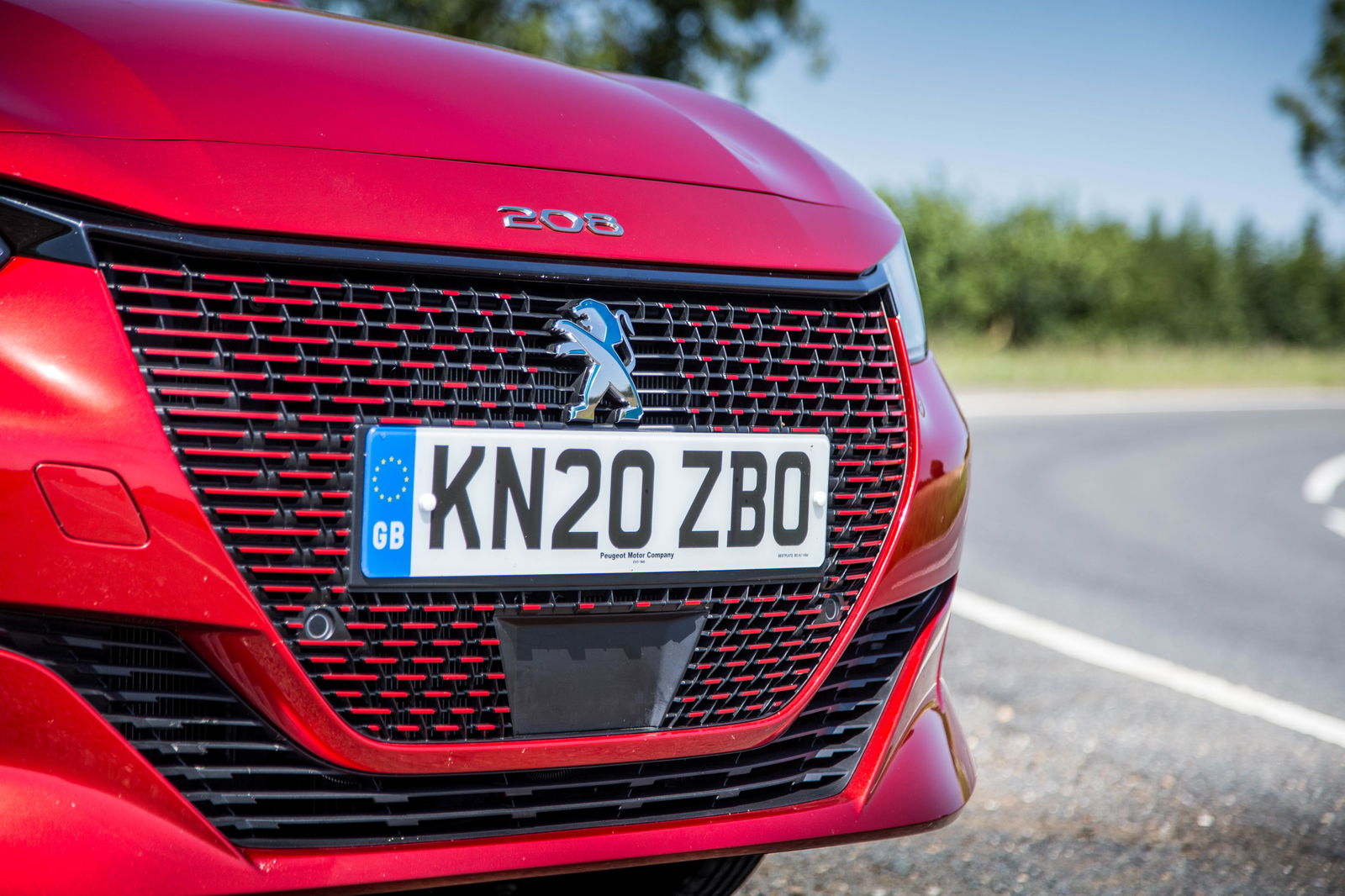
Plus, the Frenchie - which has a much bigger boot, it’s worth noting - makes a lot of fiscal sense. With a starting price of £25,050, it undercuts the cheapest Honda E by over a grand, despite having significantly more range. Yes, Honda may be pitching the E firmly as a city car that doesn’t need more than a circa 120-mile official range, but it’s hard to ignore the bigger battery that Peugeot uses, making the E seem over-priced.
Ultimately, the e-208 doesn’t come with the same want factor as the Honda E, nor the Mini Electric. But it’s still a stylish, handsome little devil, and the electric supermini which makes the most sense. Well done, Peugeot.
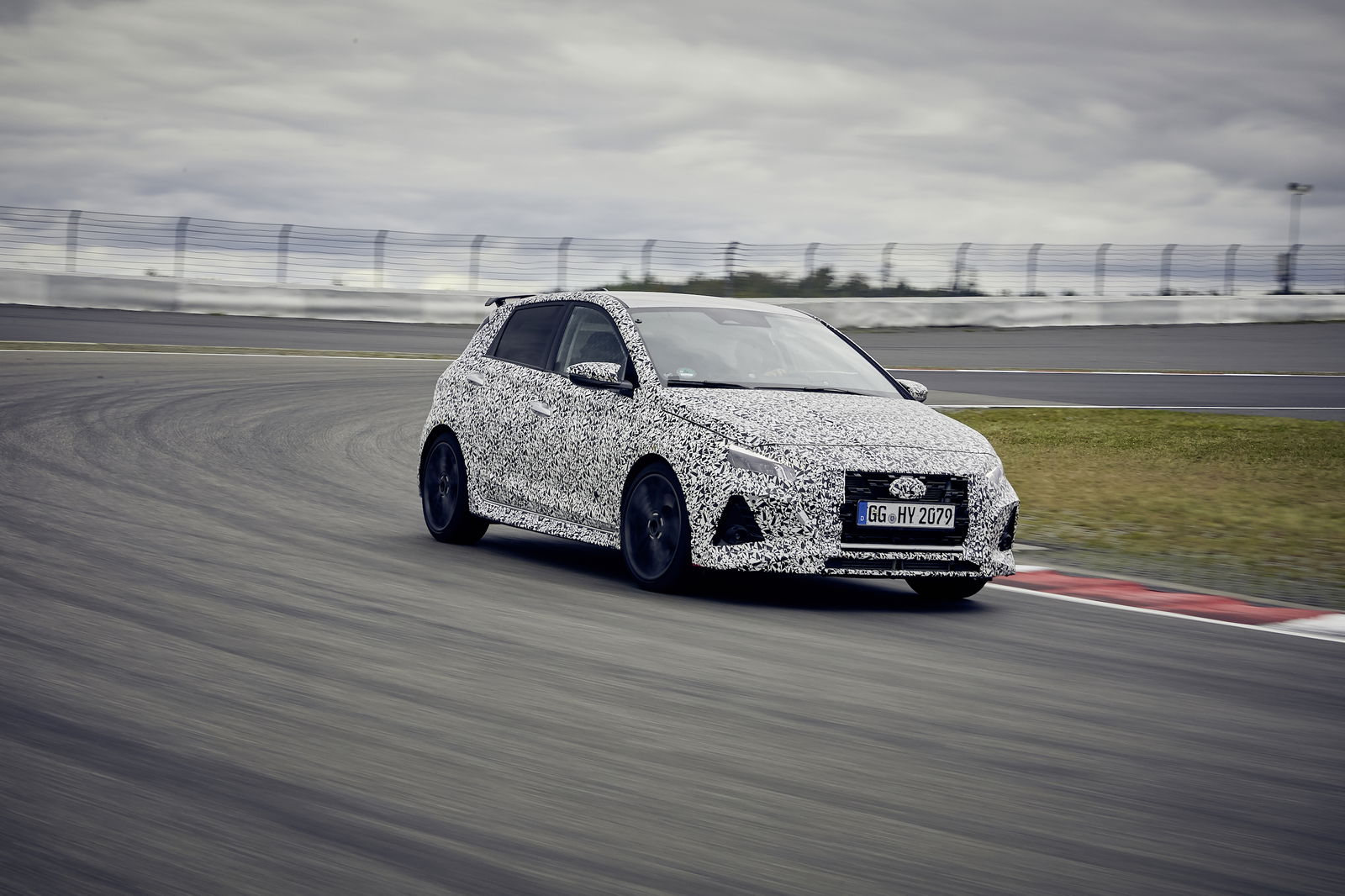
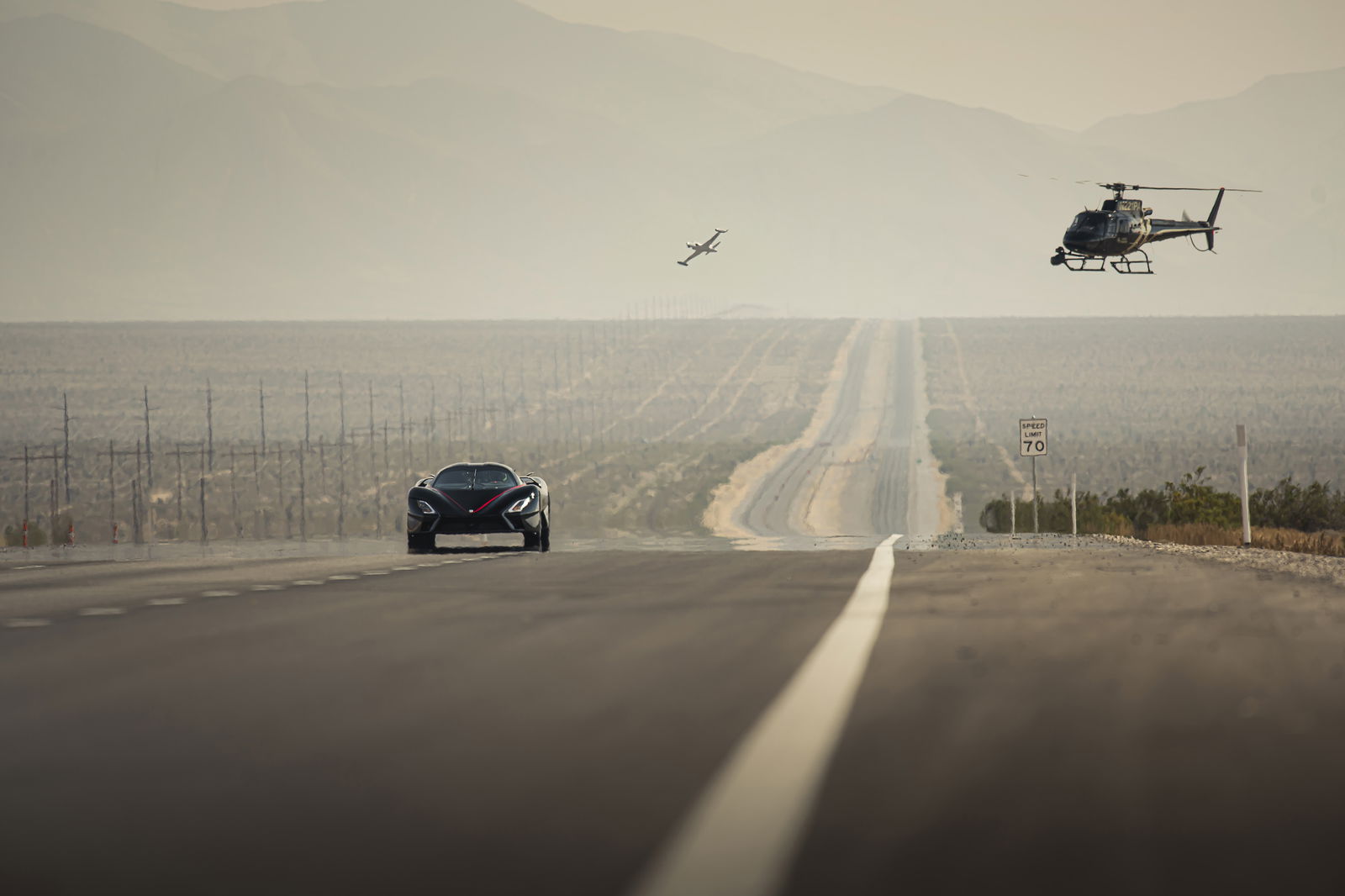







Comments